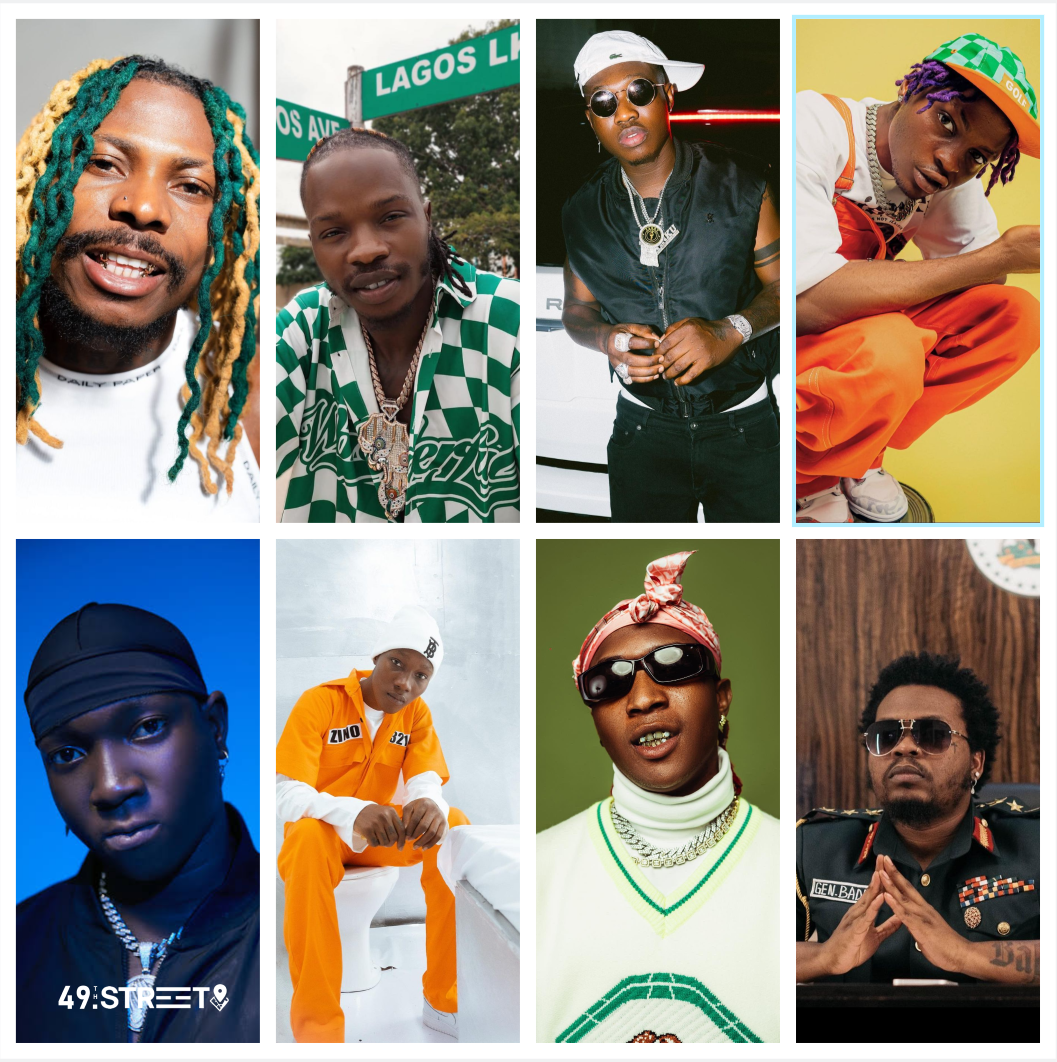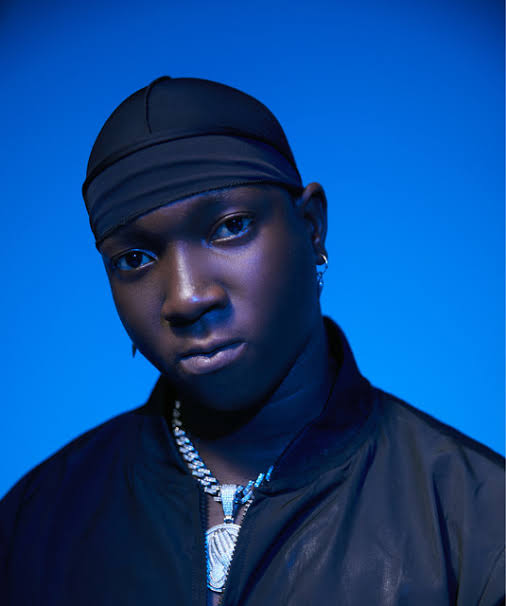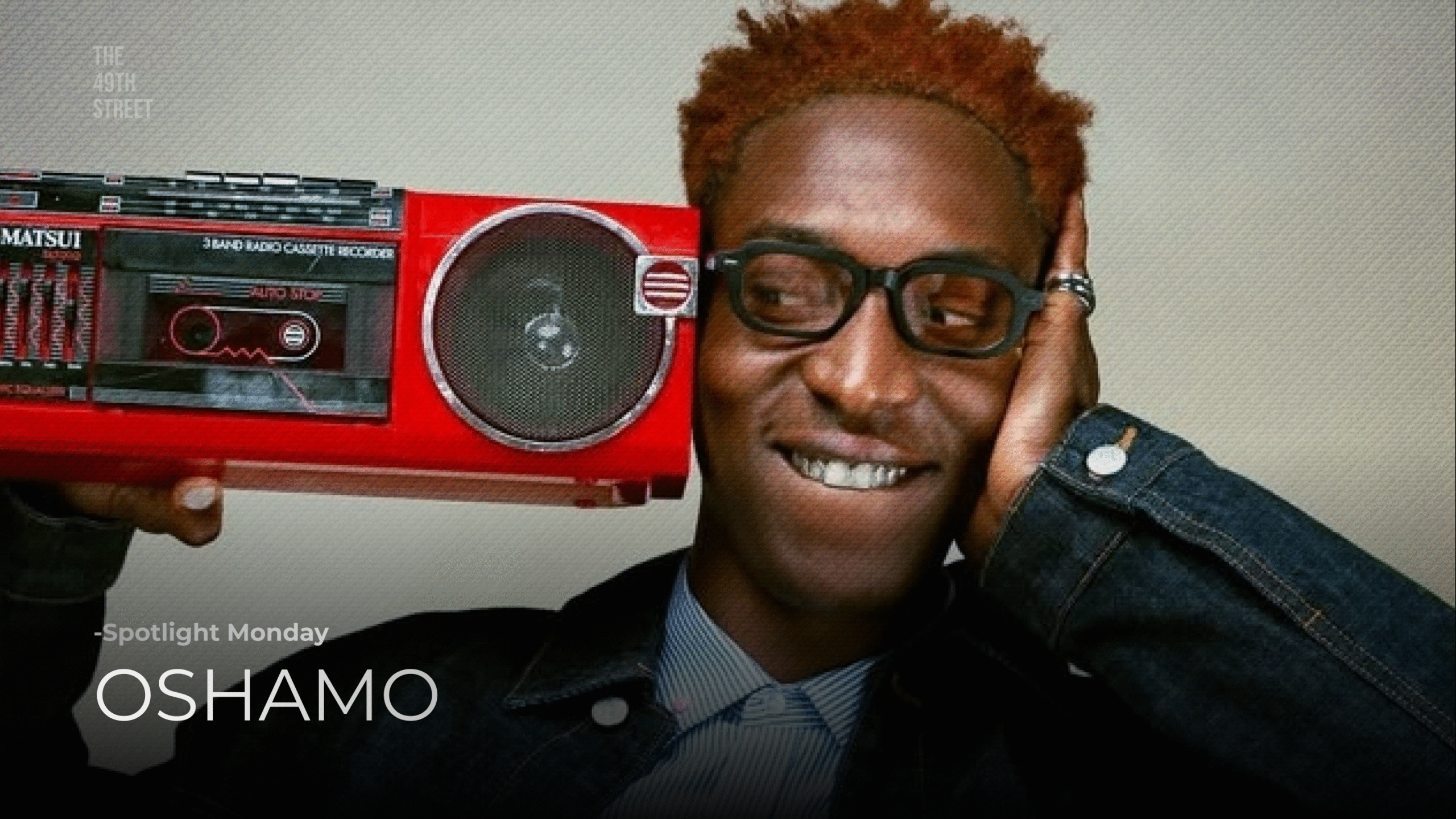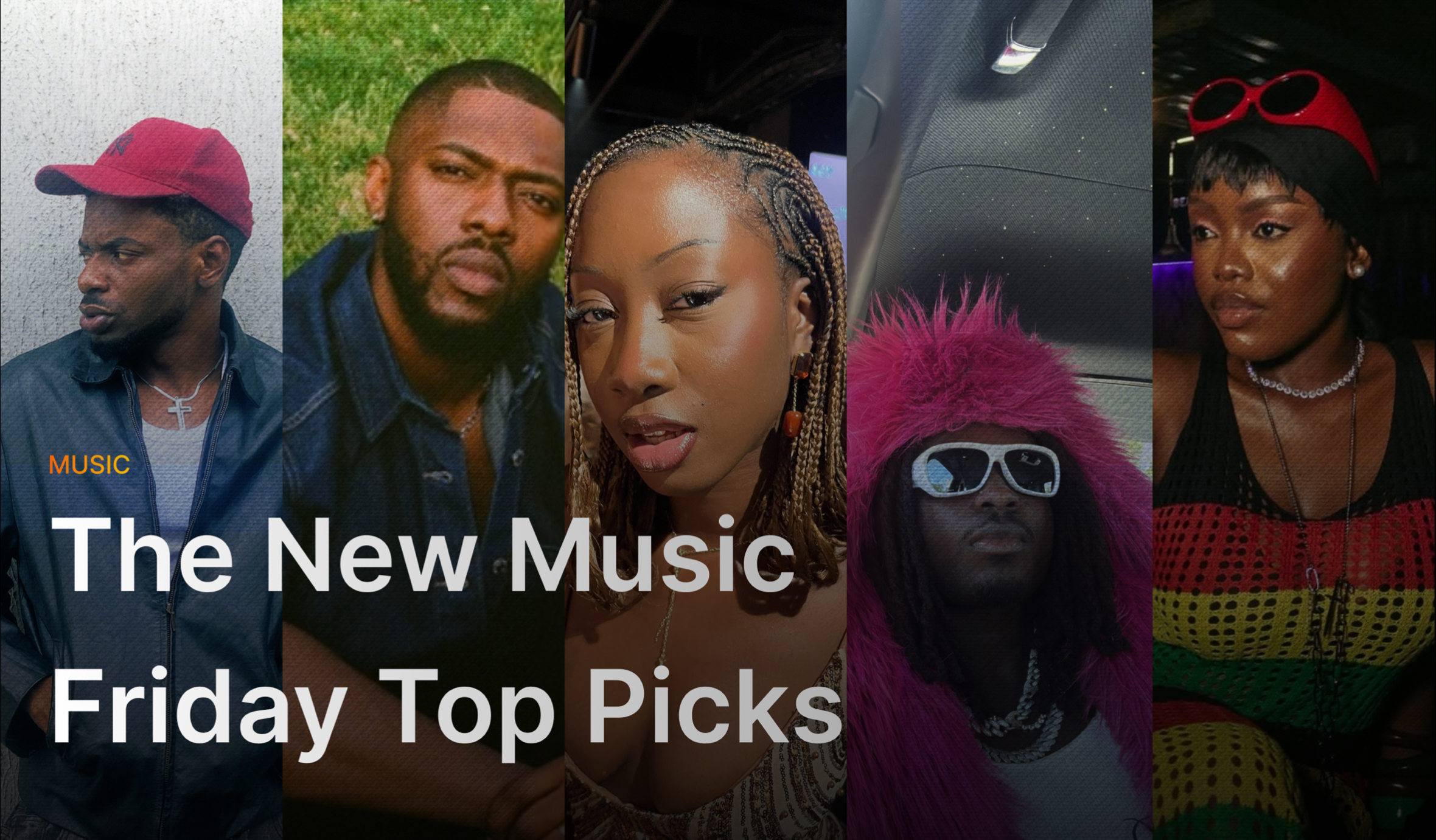by Patrick Ezema
Nigeria’s street pop scene, consisting of equal parts American hip-hop spirit, Yoruba culture, and traditional Afropop beats, has made an interesting, yet easily overlooked journey in the past 15 years. In a decade and a half, it has moved from niche outlier music, mostly enjoyed by “street guys”, or those sharing the mentality of its creators into mainstream entertainment, topping charts and gaining nationwide acceptance, so that a similar background is no longer a requirement to enjoy these stories.
A Story With Many Characters, Many Chapters
In the past 10 odd years, we’ve seen many other acts burst into the limelight in street music and achieve the status of general acceptance, each handing the baton to the next to usher in a new era. Naira Marley’s insane run four odd years ago, fueled by controversial squabbles with the EFCC and titillating material featured a rollout of singles that leveraged fast-spinning Afropop beats and Yoruba-pidgin lingo to create danceable songs. Later on, Bella Shmurda and then TI Blaze preferred a slower, more intimate route, drawing heavily from the lowly circumstances of their birth and painting these experiences side by side with their newfound lives of affluence for the perfect grass-to-grace stories. In all of these, however, the core of street pop – its connection to roots and the parlance with which it is delivered – has remained unchanged.
The allure of Street pop is not spatially limited to Southwestern Nigeria, though. The Ogene, which historically decorated huge social and traditional events in ancient Igboland has been repurposed, and, paired with modern production and snappy lyrics, now forms the core of an artist like Zoro’s replication of Street pop. Other parts of Nigeria have not been left behind, but for fear of turning a short article into an anthology thesis, this article will focus on the street pop of Southwestern Nigeria.
Street Pop and The Lagos Scene
When asked for its origin, Dagrin is the first name that most lips will arrive at. However, long before the young rapper took to the studio to express the unique problems and identity of his hood in music, there was 9ice, and with him was ID Cabasa. The singer-producer duo, as tight as two peas in a pod, at least then, were responsible for some of the early forays into Yoruba street pop. 9ice was one of the first to extract Yoruba lyrics from the Fuji and JuJu beats they were traditionally associated with, and insert the same into more modern beats. ID Cabasa’s involvement in the growth of Street pop, however, extends beyond his work with 9ice. Apart from being one of the early producers in the scene, he was also the founder of Coded Tunes, which had in addition to 9ice, among its notable signees Olamide and Reminisce, two names that would later go on to headline the scene.
Olamide: The Quintessential Street Pop Act

Olamide is certainly the more popular of the two, and perhaps the most impactful individual in this article full of talented acts. Back in 2011 when Afropop was making intercontinental steps and the young Wizkid and Davido were preparing to launch into stardom on its shoulder, Olamide, born Olamide Adedeji, thought in a different direction. Taking a cue from Dagrin and his Yoruba infusions of foreign hip hop, he released Eni Duro in 2011. Olamide would later go on to soften his material somewhat, as his rising profile began to distance him from the trenches that so easily fueled his entry into music. His next singles, “Omo to Shan” and “First of All” were equal parts pop and rap, signalling the beginning of a marriage of Yoruba hip-hop and pop beats. Over the years Olamide went on to produce more street bangers like “Bobo”, “Who You Epp” and “Eleda Mi”, revealing a version of “street music” that was focused more on creating catchy anthems that quickly spread through localities, rather than create animosity with combative rap singles.
The track, “Wo!!” deserves special mention. Released in 2017 ahead of “Lagos Nawa”, his 7th studio album, the song, very light in lyrics, had Olamide yell the word “Wo!!” exactly a hundred times in response to a variety of gibberish phrases, most of which were designed to get the listener dancing. “Life is short like nikka,” he says, encouraging his listeners to cast away life’s fears and instead put on their dancing shoes. Whatever the song might have lacked in lyrical depth is more than made up for in significance and impact, as it became one of the first street pop songs to achieve national fame, making waves in places where its language was not even understood.
As mentioned earlier, Olamide’s continued rise in fame and stature meant he could no longer readily associate with the ideals of street living that constitute the lyrics of the typical street pop song. Olamide’s penultimate album, Carpe Diem, brought him ever closer to Afropop than hip-hop, and his last LP, UY Scuti, was an RnB-themed rebrand hoping for some slice of the pie that more mainstream Nigerian acts enjoyed internationally. While both projects were fairly successful in their respective attempts, they distanced him from street pop and would have exposed a large hole in the growing culture if other acts had not stepped up to the plate.
Dance and Street Pop
Olamide was missed in the street pop scene, but not very much. Between 2017 and 2019, many street artists emerged leveraging the influence of dance in street pop. The creation and popularisation of new dance routines have always been under the purview of street pop artists, and artists like Idowest, Slimcase, and Mr Real rode on the popularity of the “Shaku Shaku” dance to propel themselves to national fame, spawning a bevvy of hit tracks, from “Shepeteri” to “Legbegbe” that kept the country aflame with street pop. Those songs had the cultural impact to rule the scene for a couple of years, but some of the biggest National gains were to come on the back of two mega hits, “Issa Goal” and “Able God”. They ushered in a new era and were the launching pads for two acts that would go on to dominate the street pop stage for the next few years – Naira Marley and Zlatan. Zlatan and Naira Marley, a pair as thick as thieves, went on to headline the scene with catchy lyrics and upbeat melodies. These acts shed street pop of most of its original thug-like skin and focused on working hood lingo into the most danceable, infectious tunes they could. Songs like “Mafo”, “Tesumole”, “Opotoyi”, “Lagos anthem”, and “Bolanle” sit in this category.
Vulnerability and The New School
The latest set of stars are younger, more enterprising, and much more willing to stretch their artistry to accommodate other sounds so that the current version of street pop is more sonically layered than ever. And just as important, the old help shape the new. Bella Shmurda’s early collaborations with dons like Olamide and Zlatan, as well as acts like Zinoleesky and Mohbad being signed on the Naira’s record label reveal something critical and easily overlooked in today’s Street Pop scene: continuity. Now more than ever, new acts can get help and assistance from the old, revealing that the street pop scene has become its own industry.
For thematic material, Bella Shmurda, Zinoleesky, T. I. Blaze, Mohbad, etc have embraced and capitalized on their vulnerability. The volatility of their upbringing, their desire for a better life, and the illegal choices they sometimes make to attain it are laid bare to the audience. These are tightly crafted into well-written songs that will provoke a feeling of congruity from even listeners who are disconnected from that reality. The runaway successes of songs like Bella Shmurda’s Cash App in 2020 (despite the attendant accusations of glorifying crime), Zinoleesky’s Kilofeshe, and Mohbad’s “Feel Good” points to street pop’s hold in Nigerian music, but none of them has quite the impact in mainstream Nigerian music like Asake’s crazy run in the 2022 half-year. His marriage of street pop, Amapiano, rap, Europop, and even gospel(!) music genres has been as unprecedented in the music scene, as it has been successful. After a prosperous run atop the Apple Music and Turntable charts so far, the eccentric singer will be looking to consolidate his position internationally, as he prepares to be Street Pop’s biggest export this year.
What’s Next?
What’s next for Street Pop? Well, to even attempt to predict its future direction would be going counter to everything it stands for. The spirits of dynamism, malleability, and adaptability form the core of Street Pop just like they are at the core of the street and if they continue to be, there is no telling what sounds and instruments will be added under its umbrella in the years to come. Its upward mobility and growing popularity, however, assure that an intercontinental march is on the cards for Nigeria’s most boisterous music genre.







